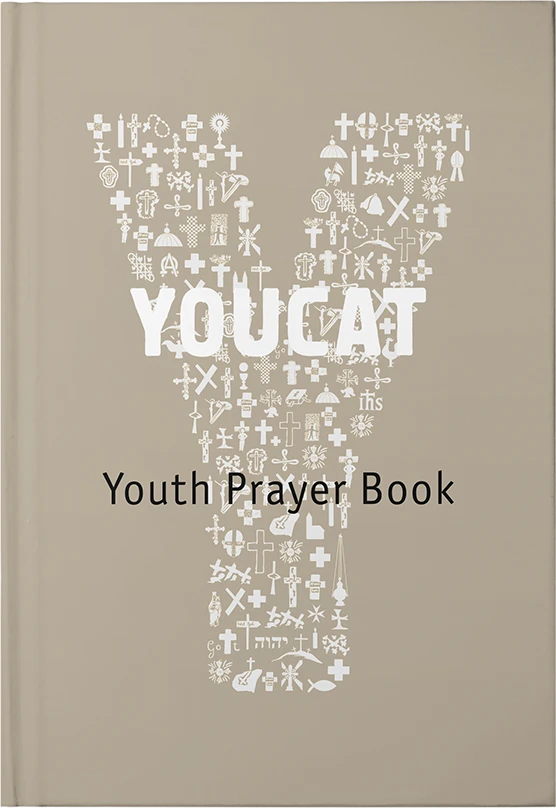

Credopedia
Trinity Sunday: God is love
In the name of the Father, the Son and the Holy Spirit. An interpretation based on the 1st reading and the Gospel.
Trinity Sunday: God is love
Every year the Church celebrates Trinity Sunday on the Sunday after Pentecost. Why is this? With Pentecost, the salvific work of redemption is completed and likewise, with the revelation of God’s Trinity, revelation as a whole is completed. God’s will is to reveal to us the innermost nature of himself. Why? Because God is love. He who loves wants the other to know him completely in the depths of his being. God’s self-revelation, in which he wants to reveal to us the mystery of his being, is ultimately the revelation that God is triune. Because each one of us is called to enter into a very personal relationship with the three persons of this one God.
What do you do when you are in love? You talk and talk and talk – at least we women do – to tell the other all about yourself, that is, to reveal yourself to the beloved. Through talking, you try to communicate yourself, to tell the other everything there is to communicate about you, so that he/she knows and recognises you. At some point you come to the point where you know the other person so well that you say, “I want to give you my life, I want to receive your life.” You go – ideally – to the altar and promise to be faithful to each other until death. So, one makes a covenant. Then follows that self-revelation through words, that one seals this covenant of love completely with the pledge of the gift of one’s own body, that is, with the gift of oneself to the other.
God does nothing less: He becomes man in order to reveal Himself completely to us in the person of Jesus Christ. Jesus himself is the whole revelation of the Father. He says: “Whoever has seen me has seen the Father.“ (Jn 14,9) He talks and talks and talks during his public ministry and finally says: “I have told you everything I have heard from my Father.“ (Jn 15,15)
Then he goes and seals the covenant in the giving of his own life. This is what the Gospel of the day alludes to: “For God so loved the world that he gave his only Son, so that everyone who believes in him might not perish but might have eternal life.“ (Jn 3,16) And after that, he sends us his Holy Spirit so that it takes up residence in us and through him we come into contact with the Lord.
This giving of Jesus’ life on the cross remains present for us in the mystery of the Eucharist. There Jesus gives himself to us as radically as a husband who gives himself with all his fertility to his wife. Thus, receiving him like a wife receiving her husband’s seed, we become fruitful and bring forth divine life. This is exactly what happens in the mystery of the Eucharist. Why can we become fruitful? Because the Holy Spirit, the principle of conception in God and of fruitfulness, dwells within us. He tears down those inner walls that we have erected against God through sin within us and gives us the gift of being fruitful. In this way the Lord gives himself to us, he gives us his seed which can bring forth new life in us.
Let us now turn to the first reading: this is actually about the most important revelation of God in the Old Testament. Probably the most famous passage in the Old Testament in which God reveals himself is the one in which God appears to Moses at the burning bush and makes his name known. There Moses says to God: “When I go to the Israelites and say to them, ‘The God of your fathers has sent me to you,’ if they ask me, ‘What is his name?’ what am I to tell them?” God replied, “I am who am.” Then he added, “This is what you shall tell the Israelites: I AM sent me to you.“ (Ex 3, 13-14)
Or as one could also translate: “I am who I will be”. God reveals his name here, and “name” in the biblical sense means “manifestation of one’s own being”. Nevertheless, it remains a mysterious name, for it still says nothing other than that God is the Being and that he will always be who he is. So God does reveal his name, but Moses cannot yet give a proper definition about this God other than that he is the Being. In the translation “I am who I will be,” it sounds like God is saying here, as it were, “Enter into a covenant with me, engage with me, I will live a history with you, and in the way I lead your life, you will know who I am.”
This is exactly what happens in the covenant-making at Sinai. God leads Israel out of Egypt and makes a covenant with them at Horeb, the mountain of God. So who is the God that Israel recognises up until then? He is the God who led them out of slavery in Egypt. Israel knew: “This God is great! He has defeated the great power of the ancient world of that time, he has freed us from Egypt, he is stronger than Pharaoh, no human power is stronger than our God. Of course we will want to engage with this God and live a story with him.” Any of us would. That is why the people say with all their conviction: “We will do everything that the LORD has told us.“ (Ex 24,3)
But no sooner is the covenant made than Israel commits the worst sin in its history: it casts for itself a golden calf (cf. Ex 32), with people saying: “This is your God, O Israel, who brought you out of the land of Egypt!“ (Ex 32,8) Humanly speaking, one would have to say: this people has broken the covenant and thus no longer has a right to be the people of this God. But it is only at this moment, when Israel has committed the worst sin imaginable, that God can go a step further in revealing Himself. Interestingly, he writes this on a new pair of tablets. This is an allusion to the fact that there will be a new covenant.
Here God reveals his name again, but now he gives a deeper meaning to this revelation of his name. Now he can reveal something to Israel that they would not have understood before. Before, they understood that God is only Redeemer and that God is stronger than the enemy powers. But now they understand that God is the one who forgives their own sin and whose mercy is greater than his justice. This is the name of the new revelation of his name, the new manifestation of his being: „The LORD, the LORD, a merciful and gracious God, slow to anger and rich in kindness and fidelity, continuing his kindness for a thousand generations, and forgiving wickedness and crime and sin.“ (Ex 34, 6-7)
The revelation of the innermost nature of God thus says that he is merciful. And this mercy of God is later revealed to us – face to face – in the person of Jesus Christ, who brings this very revelation to its conclusion and thus fully proves that he is merciful. Mankind beats Jesus Christ to the cross through their sins, but instead of God rejecting us because of that, Jesus returns from the dead and reveals to us that he still loves us unbrokenly and that he has even turned our own death, or rather that the Father has turned our murder of the Son, into the source of mercy for all mankind, namely into the source from which the forgiveness of sins flows. He reveals that while we crucified Him, He took our guilt upon Himself and thereby nullified that guilt, so that He can become the source of mercy for us.
Therefore, one cannot celebrate the feast of the Trinity without understanding that the Trinity has revealed Himself to us as an infinitely merciful Father who gave His own Son to die for us and that this Son Himself died for us out of love so that the Holy Spirit could come and dwell in us and take us into this eternal communion of burning love.

YOUCAT Digital
Discover our digital products, which will help you to grow in faith and become missionaries yourself.







